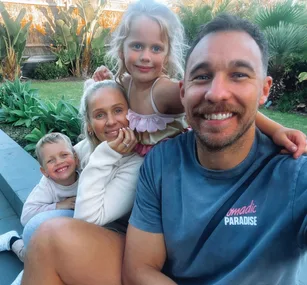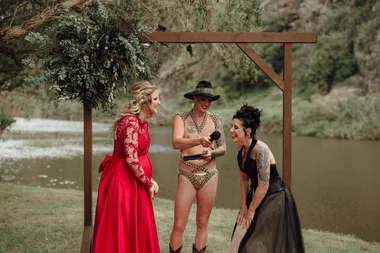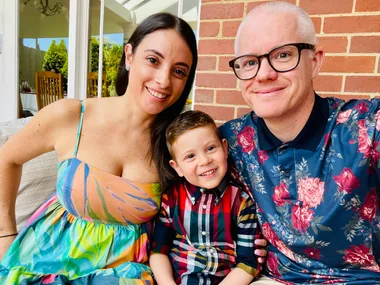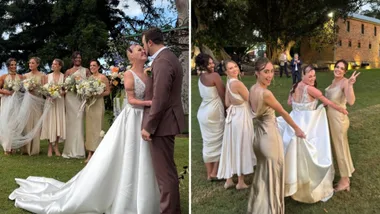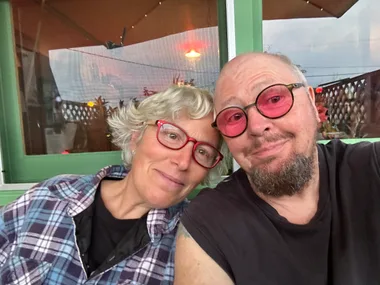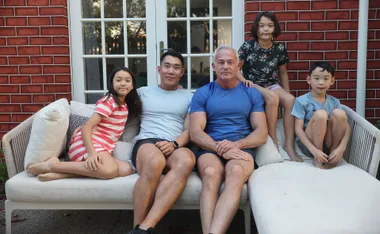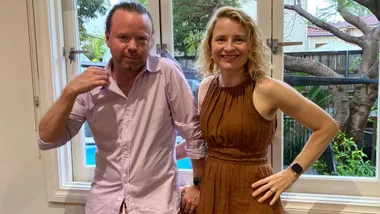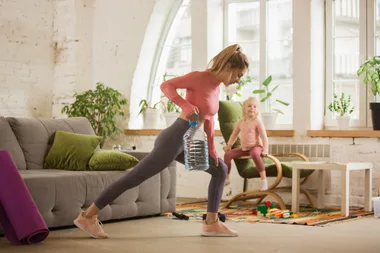Simone and Ravi were one of those couples others thought of as perfect.
They had a successful small business, three great kids and spoke of more ups than downs.
So when Simone, 43, told family and friends that their 18-year marriage was over, their surprise said it all.
“Everyone was shocked,” she says.
Worse than shock was the sadness that they responded with.
“A mum from school burst into tears because she said if we couldn’t make it together, how could anyone else? Everyone thought we were solid. That was part of the problem – nobody knew we’d been drifting apart for years.”
The average age for divorce is increasing, according to the Australian Bureau of Statistics, with women aged 40 to 44 most likely to divorce, up from 38 in 2000. Almost 50,000 divorces were granted in Australia in 2020.
Since divorce requires a minimum 12-month separation under Australian law, those couples called it quits in 2019 or earlier, but there’s no denying COVID also had an impact. There were plenty of relationships that didn’t make it through pandemic pressures.
“While it’s too soon to see any trends, the stigma around seeking mental health support – which includes relationship difficulties – is slowly reducing and more people are reaching out,” says clinical psychologist Julie Fox.

Almost 50,000 divorces were granted in Australia in 2020.
(Image: supplied)WHY IT’S HAPPENING
Through her work at women’s only telehealth psychology service Pynk Health, Julie says women considering divorce in the past couple of years are often motivated by their own unhappiness.
“COVID made us take stock of our lives. For some women, it confirmed their relationship had deteriorated to a point where it wasn’t able to recover.”
Divorce mentor Kate Boyden says COVID conditions were a “pressure cooker” for some. “Too much time together and not being able to escape for some breathing space made the last couple of years difficult for some couples.”
Other relationships fell apart due to cost of living and housing worries.
CONSCIOUS UNCOUPLING
Whatever the reason, when a couple agrees to split, professional guidance improves the chance of doing it amicably.
“Divorce requires a conscious effort from both parties to take responsibility for their own personal development and healing,” says Kate, a former lawyer who has coached hundreds of women through divorce. “Success is heightened if both parties are still respectful towards each other and often that’s with the assistance of an experienced coach or therapist.”
Julie says professional help can shift the balance towards the conscious uncoupling made famous by Gwyneth Paltrow and Chris Martin in 2014.
“Conscious uncoupling is a staged process where couples separate from each other without hard feelings, resentment or unhappiness,” says Julie. “Being prepared and having support early is extremely important.”

Professional guidance improves the chance of couples splitting amicably.
(Image: supplied)THE PRACTICALITIES
Practical support is also available when filing for divorce.
“Divorce is actually the easiest part of separating,” Kate says, adding that after 12 months living apart, one or both partners can file the paperwork to the Federal Circuit and Family Court, with or without lawyers.
Once a divorce is granted, negotiations regarding parenting and division of assets can be finalised, typically within the next 12 months. “These more emotive aspects, like deciding on shared care of children, tend to be more challenging,” says Kate.
Planning how to respond when someone asks why you’re breaking up is helpful. “It can be short, like, ‘We did have some happy times but for that to continue for both of us, we need to be apart,'” Julie says.
Remembering that the marriage began with love can help, Julie adds. “The sooner a couple can get on the same page, the more likely a relationship can end in a respectful way, reducing stress for everyone involved.”
Action plan
In addition to filing for divorce, you could talk to a lawyer about:
● Creating a parenting plan for any children living at home.
● Making a financial agreement for division of assets, including property and superannuation.
● Updating the beneficiaries of your will and life insurance.
● Changing power of attorney in case you can no longer make decisions for yourself.
For more information, contact the Family Relationships Advice Line on 1800 050 321 or familyrelationships.gov.au
OH, HONEY!
May is ‘Honey Month’. Zea’s honey is both delicious and good for you. This family-owned Australian health and wellness company has three types on offer – Kunzea Honey, one of the rarest varieties, which boasts nutritious and natural medicinal properties, Island Blend Honey, a delicious blend sourced from the flowers on Flinders Island, and Manuka Bioactive Honey, which can help soothe a sore throat and ease digestive issues.
Buy a value pack with all three for $62. Available at www.zea.com.au

Island Blend Honey can help soothe a sore throat and ease digestive issues.
(Image: supplied)
